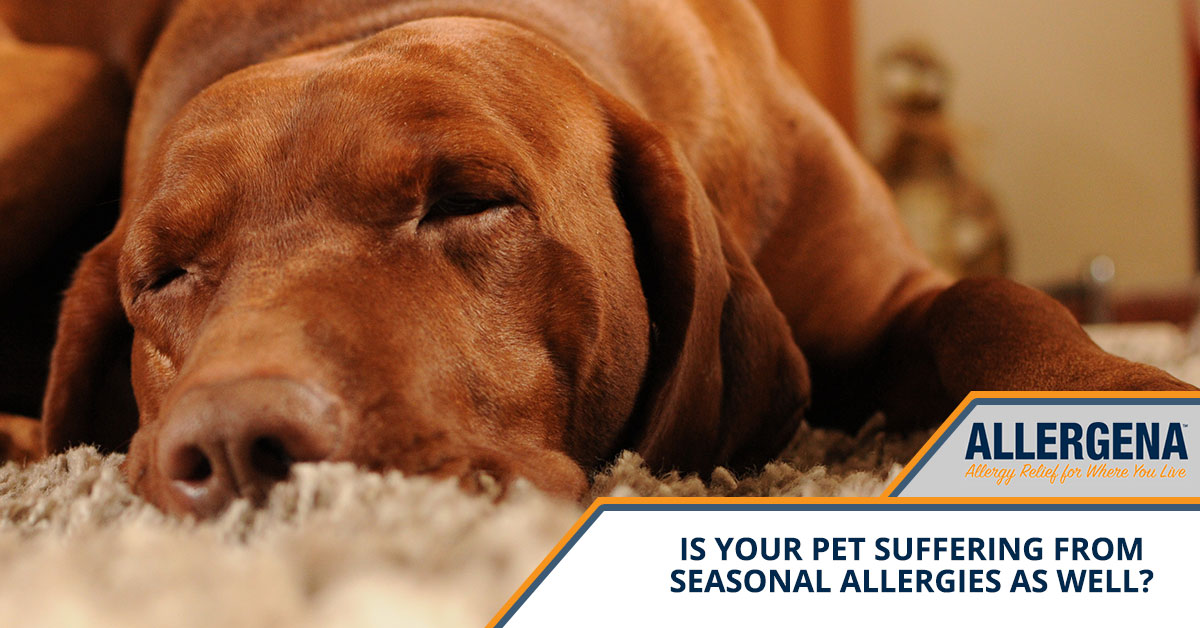Recent Posts
Is Your Pet Suffering From Seasonal Allergies As Well?
Posted by on

It is thought that nearly half of all pet owners have no idea that the furry members of their family are dealing with seasonal allergies. While it is fairly easy to identify the symptoms that come with seasonal allergies for humans, the signs that a pet is dealing with the same sort of issue is often difficult to identify. In this post, we are going to give you more information about the signs that your pet is also struggling to deal with allergens in the air and how you can proceed to ensure that they can obtain some sort of relief. Continue reading below to learn more.
The Two Categories of Pet Allergies
There are mainly two different types of allergies that both people and animals can suffer from. These are environmental allergies and food allergies. If your pet starts to scratch more during the spring, summer or fall, there is a chance that he or she is suffering from and reacting to seasonal environmental allergens. However, if your pet’s symptoms tend to continue year-round, it is much more likely that the sensitivity is being caused by something other than seasonal allergies. Instead, there is probably something your pet is sensitive to that is either in their constant environment or in their diet.
There are just a few exceptions to the rule, however. For instance, if you happen to live in an area that never really has a hard freeze during the winter, it is possible that environmental allergens could have built up and caused a year-round issue for your cat or dog.
Signs Your Pet Has Seasonal Allergies
When it comes to allergy symptoms in humans, they almost always involve the respiratory tract. On the other hand, dog and cat allergies are much more likely to come in the form of skin irritation or inflammation. This is also known as allergic dermatitis.
When your pet has allergies, their skin will become extremely itchy. There will be excessive scratching and it is likely that they will also bite or chew in certain areas on their body. Additionally, you may notice that your pet is rubbing their face against the carpet, furniture, or other hard vertical surfaces in your home. Know that when this happens, it is just your pet trying to find relief from the discomfort they are experiencing.
As your pet begins to scratch more and more, their skin will begin to become inflamed which will make it tender to tough. In untreated cases, animals may even experience hair loss, open sores on the skin, and scabbing.
There is also potential that hot spots can develop on your pet at this point. A hot spot is an infected and inflamed portion of skin that occurs when a dog’s natural bacteria overwhelms an area of their skin. These will look like sores that are very red and will often bleed.
Additional Signs of Pet Allergies
It is also extremely common for pets with allergies to have issues with their ears. This is especially true of dogs. The ear canals can become itchy and inflamed as part of the overall allergic response. If you tend to notice that your pet is scratching at their ears, shaking their head, or losing hair around the ears. You may need to consider the possibility that your pet is struggling with seasonal allergies. You may also want to check your animal’s ears for signs of discharge or odor.
While the symptoms of pets’ seasonal allergies are not the same as those of humans, dogs and cats can also have typical allergy symptoms as well. Pay attention to your pets so you can notice is they have a runny nose and watery eyes or if they are sneezing and coughing.
Seasonal Allergies Can Turn Into Year-Round Allergies
When pets have allergic reactions, they are being produced by the pet’s immune system. This means that over time, seasonal allergies can get worse and last longer. This happens because the longer a pet is exposed to a certain allergen that they are already sensitive to, the more intense and long-lasting the allergic reaction becomes. This is why it is important that pet owners know what their animals are allergic to from the time the cat or dog is as young as 6 months old.
How to Help Your Pet
If you want to help your pet find relief from seasonal allergies, there are a couple of steps you can take. The most important is to give your pet baths very frequently. Not only does washing your pet give complete and immediate relief from their itching skin, but it also will wash away all of the allergens that have built up on the skin and the coat. For best results, always use a grain-free (oatmeal free) shampoo.
Another way to help your pet is to give them foot soaks. This will reduce the amount of allergens your pets bring into the house each time they return from being outside.
Shop Allergena Today
If you want to bring even more relief to your pet, Allergena is here to help. Not only do we offer a seasonal allergy solution for humans, but we also offer a formula for their pets. If you want to learn more about our Allergy Relief Formula for Cats and Dogs, we would suggest you shop our online store now. The sooner you order, the sooner your pet will be happy again.
 Loading... Please wait...
Loading... Please wait...

